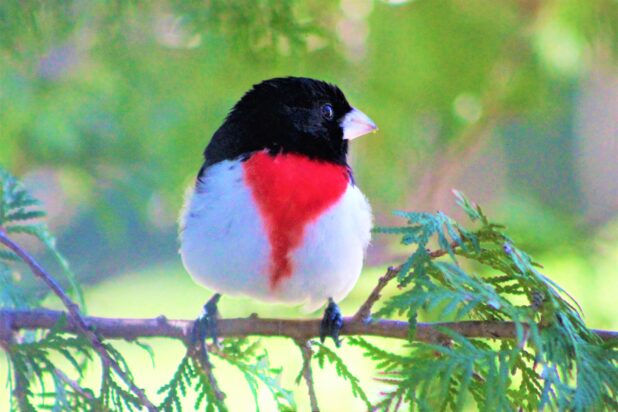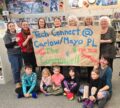Commentary
Let it shine
May 11, 2021

By Nate Smelle
Since the COVID-19 pandemic became part of our daily routine last year our world has been going through a massive transformation on all levels. Now that the vaccine has entered the equation, and the daily case count appears to be slowly declining, hopefulness for a return to “normalcy” is beginning to grow. As welcome a sign as this may be, in reality our new normal will look very different than the one we were accustomed to before the pandemic.
In terms of public health crises, COVID-19 is not humanity’s first rodeo; nor, at this point at least, has it been the most deadly pandemic we have faced as a species. That notorious title of course goes to the Bubonic Plague – aka the Black Death – which wiped out an estimated 75-million to 200-million lives throughout Africa, Asia, and Europe between 1346 and 1353.
As we continue to wade through the mire arising from the wake of the third wave, and attempt to define a path leading out of this global health crisis, there is much we can learn from the footprints left behind from previous pandemics. By press time on Tuesday, May 11, the global death toll included some 3,306,550 names. Weighing these gruesome numbers against those of the Black Death, they suggest that our greater collective knowledge of disease control – especially considering the global population at the start of the Black Death was approximately 475-million, whereas now it is around 7.8-billion – has improved our species’ chances of survival.
That said, the Black Death lasted more than seven years. Digging in a bit deeper, I discovered that the average duration of the top 10 most deadly pandemics in human history lasted an average of more than three years. At this rate, if the current pandemic follows suit, we could see the global death toll climb to nearly 10-million by the year 2023.
While no one likes to think about COVID-19 delivering us with another bummer of a summer in 2021, we need to be prepared to deal with the fact that the ongoing pandemic, and the measures in place to reduce its impact, will likely be with us for much longer than that. As exhausting and discouraging as this reality might be, there is a bright side. That being: the time and opportunity we are being given to assess and enhance the systems we have established to improve our quality of life. In some cases – for example, for-profit long-term care in Ontario – to make things better we will need to scrap certain aspects of the systems we have come to rely upon.
As we hit the reset button, we also need to think about what from our pre-pandemic past that we undervalued or took for granted. Putting this piece of the puzzle under the microscope, it occurred to me how important our many festivals and signature events are to the local economy.
Having attended and covered these events over and over again since moving here in 2006, I admit that at first I welcomed the thought of a summer without having to go through the same old Wheels, Water, and Wings, Rockhound Gemboree routine. Now that summer is approaching fast and it is sinking in that these events will again be missing I can’t help but think of how these types of community events must be part of our post-COVID plan.
Although it is looking like we will have at least another summer without community events, we now have valuable time on our hands to come up with new ways to promote this area and all it has to offer. With this in mind, we must now turn to our local artists to shape our vision for the future.
Following the Black Death, there was an emergence of creative energy that came to be known as the Renaissance. Harnessed by the artists of the time, this wave of expression helped record this tragic point in our history and define our current worldview. This bright light shinning through the misery of the Black Death can again be our guiding light as we attempt to move beyond COVID-19. If of course, we choose to let it shine.

















